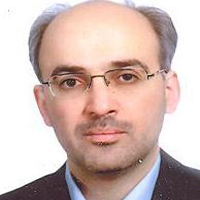Developing a Multi-channel Beamformer by Enhancing Spatially Constrained ICA for Recovery of Correlated EEG Sources
Brain source imaging based on electroencephalogram (EEG) data aims to recover the neuron populations’ activity producing the scalp potentials. This procedure is known as the EEG inverse problem. Recently, beamformers have gained a lot of consideration in the EEG inverse problem.
Beamformers lack acceptable performance in the case of correlated brain sources. These sources happen when some regions of the brain have simultaneous or correlated activities such as auditory stimulation or moving left and right extremities of the body at the same time. In this paper, we have developed a multichannel beamformer robust to correlated sources.
In this simulation study, we have looked at the problem of brain source imaging and beamforming from a blind source separation point of view. We focused on the spatially constraint independent component analysis (scICA) algorithm, which generally benefits from the pre-known partial information of mixing matrix, and modified the steps of the algorithm in a way that makes it more robust to correlated sources. We called the modified scICA algorithm Multichannel ICA based EEG Beamformer (MIEB).
We evaluated the proposed algorithm on simulated EEG data and compared its performance quantitatively with three algorithms: scICA, linearly-constrained minimum-variance (LCMV) and Dual-Core beamformers; it is considered that the latter is specially designed to reconstruct correlated sources.
The MIEB algorithm has much better performance in terms of normalized mean squared error in recovering the correlated/uncorrelated sources both in noise free and noisy synthetic EEG signals. Therefore, it could be used as a robust beamformer in recovering correlated brain sources.
-
Multiple Sclerosis as a Moderator in the Dynamics of Interoceptive Awareness and Emotion Dysregulation
Elnaz Melhi, Fariba Zarani*, Leili Panaghi, Mohammadhossein Harirchian
Journal of Research and Health, Mar-Apr 2025 -
Anticoagulation in the management of septic cavernous sinus thrombosis secondary to rhino-orbito-cerebral mucormycosis: A retrospective real-world experience
Kiana Amani, Mojtaba Shahbazi, Atefeh Behkar, Ghasem Farahmand, Shima Ghafouri, Sanaz Heydari, Maryam Kaeedi, Hana Magrouni, Fatemeh Alizadeh, Mojdeh Ghabaee, Payam Sarraf, Abbas Tafakhori, Hamed Amirifard, Sakineh Ranji-Burachaloo, Seyed Ehsan Mohammadianinejad, Melika Jameie *,
Current Journal of Neurology, Winter 2024



